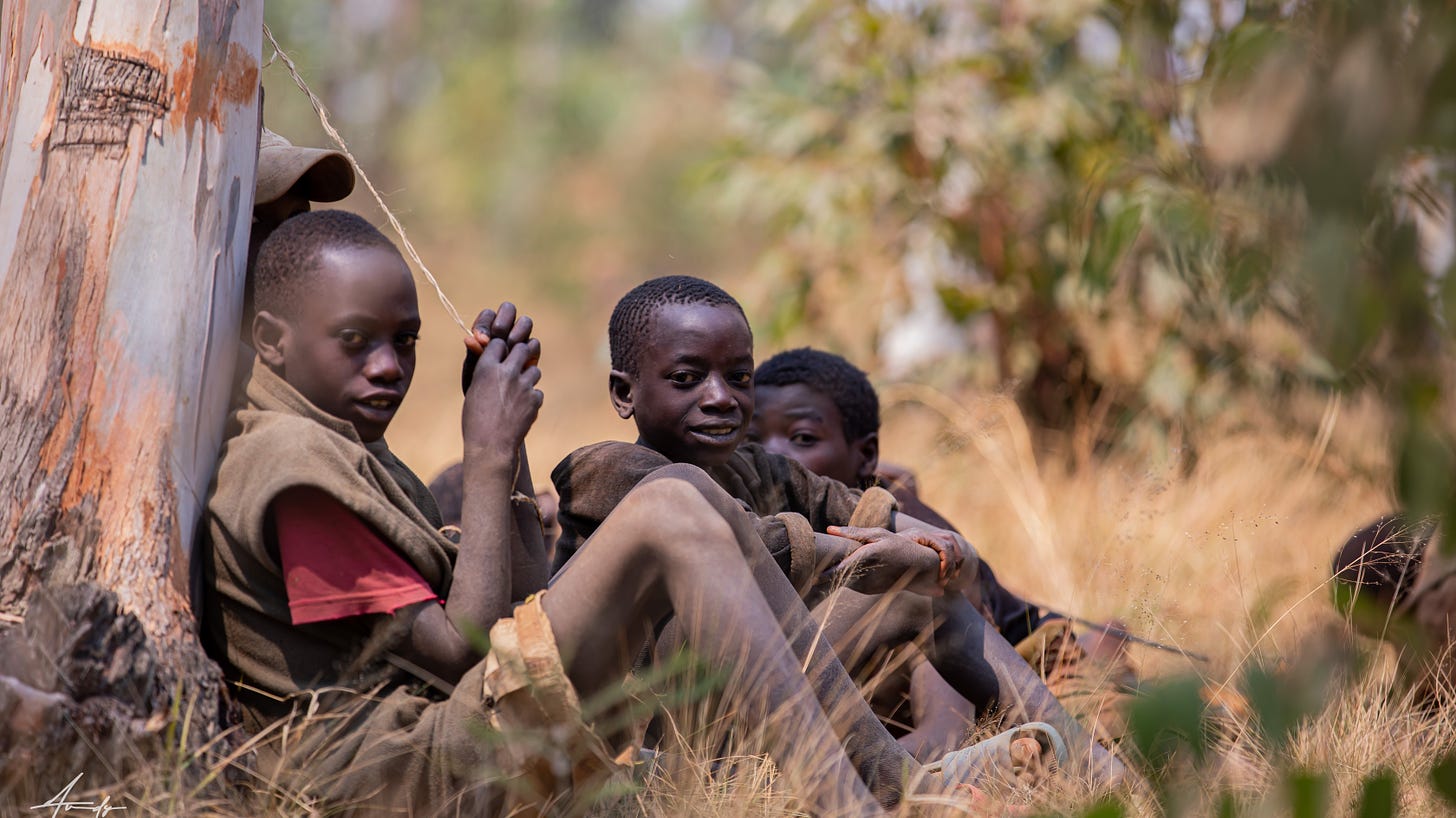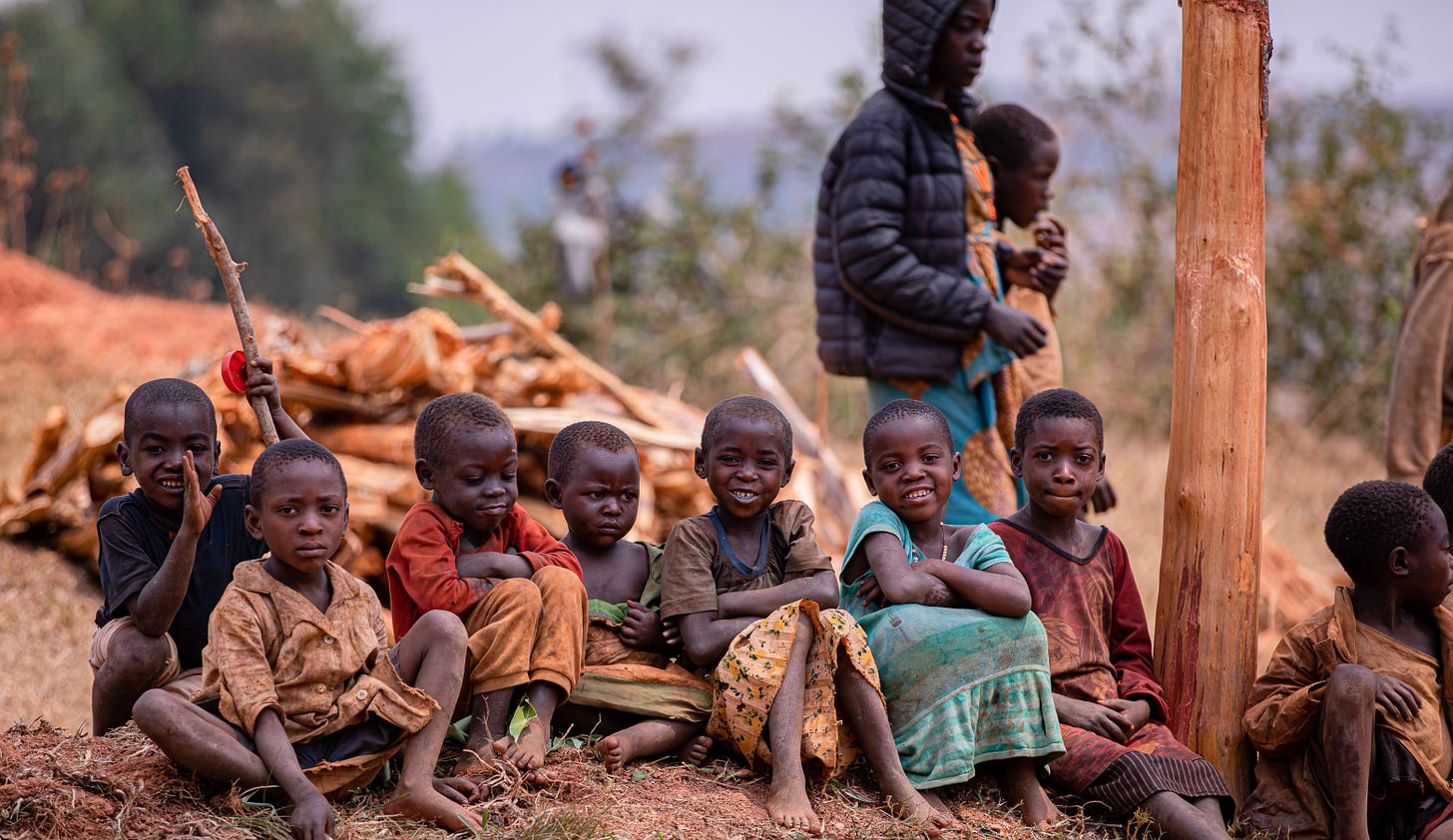Climate change and armed conflicts are generally seen as the main factors behind the hunger problem in Africa. This contrasts with the author. He argues that the main cause of famine is population growth.

The German private non-governmental organization Welthungerhilfe (World Hunger Help) was founded in 1962. It has supported projects in 70 countries with 5.07 billion euros. Its current Global Hunger Index (GHI) was presented in Berlin on October 10, 2024. According to the organization, the food situation in Africa has worsened or barely improved in some cases. There is a connection between a lack of gender equality, food security, armed conflicts and the consequences of climate change.
Welthungerhilfe does not mention the most important cause of hunger either. Climate change and armed conflicts are simply secondary to population growth. Only a rapid reduction in population growth will prevent an increase in hunger in many African countries.
Hunger and the connection with family planning have been on my mind for many years. In Africa, the rapid increase in population is exacerbating hunger and preventing economic recovery in many countries. Africa receives more development aid than any other continent, but this has not been able to significantly alleviate poverty. Unfortunately, I have seen this in all the countries I have worked in during my 17 years in Africa.
One is quickly accused of racism
Helping other people - or at least believing that you are doing so - is probably an old, all-too-human need (especially) in Germany. It creates a good feeling because you have supposedly considered those in need. Good intentions count. But foreign aid has neither solved basic social problems in Africa nor effectively increased modest mass prosperity. Aid workers should ask themselves whether they have not contributed to the continent remaining a supplicant. The uncomfortable question of whether aid can also do harm is rarely asked.
The question of whether actively limiting the number of people populating Africa could curb poverty on the continent as well as migration is given a wide berth here. German development aid refuses to link its funds to self-determined family planning and maternal health. It's a sensitive issue that can quickly lead to accusations of racism. But anyone who wants Africa to be able to feed its own people at some point and bring them into employment should also help to reduce the birth rates there. After all, a generation is growing up that has little prospect of the country in which they were born being able to feed them one day.

High birth rates are leading to increasing unemployment in Africa. African traditionalists praise the abundance of children as an integral part of the culture. Young women with no schooling and no job don't know any better. The rapid population growth is largely ignored by many authoritarian ruling systems in Africa - and development aid organizations remain silent. The inaction of African governments is creating the hunger problem in the first place, which they are calling on the international community to solve, even though they are the only power capable of solving the problem in the long term. “In many places in Africa - especially among heads of state - there is a tendency to blame the whites for all the continent's ills and to shirk responsibility,” noted David Signer, the Africa correspondent of the Swiss Neue Zürcher Zeitung (New Zurich Newspaper), for many years.
Imports from Europe, China or the USA not a solution
Ethnic affiliations characterize the societies of large parts of Africa. As many African politicians focus on ethnic polarization, they have no concept of the common good. There is no investment in public education and healthcare, family planning and agriculture. Countries such as Kenya, Uganda and South Sudan spend more money on weapons than on feeding their own populations. If you want to fight poverty and hunger, you have to promote agriculture, especially by strengthening the capacity of small farmers. It makes no sense to import food that is available in the country itself. According to the World Bank, 60 percent of the world's potentially arable land is located in Africa. Although there are still large reserves of developable agricultural land (Africa has 27 percent of the world's fertile soil), African countries import food worth around 50 billion US dollars every year. Three quarters of this food has to be imported.
The causes of famine are usually man-made and rarely natural. Only 20 percent of arable land reserves are currently being used at all. Agriculture must become much more efficient. Africa's elites must take the fight against hunger seriously. Even in fertile countries such as Mozambique or Zambia, barely 20 percent of the land is used for agriculture. It is also extremely inefficient. Small farmers usually only produce for their own needs. If they want to feed their growing population, they need to farm more productively with modern machinery, fertilizers and pesticides. Instead of synthetic fertilizers (made from petroleum, among other things), which destroy soil fertility, methods should be promoted that increase the build-up of humus in the soil (composting; animal manure).
Imports from Europe, China or the USA are certainly not a long-term solution to the food problem. Investment in rural development with education and training, agriculture, health and family planning must increase significantly. Agronomists are skeptical as to whether food production can be increased at the same rate as the population grows. With five to seven children per woman, it is difficult to find a way out of the poverty spiral. The solution can only be better education. The link between women's education and the decline in high birth rates, which is so important for Africa, is well documented.
The productivity of small farmers in Africa is very low
Agriculture is promoted in only a few countries. The Angolan economy, for example, is dependent on imports in all areas. These include staple foods such as rice, eggs, vegetables (garlic, onions, potatoes, sweet potatoes, tomatoes, cabbage, maize and manioc) and even fruit (mangoes, bananas and pineapples).
Even today, four out of five Africans have to farm in order to feed their families. The productivity of small farmers in Africa is very low. There is a lack of high-quality seed, sufficient fertilizer, irrigation systems, mechanization and machine repair, agricultural training systems, cooperation between farmers, storage facilities, cultivation techniques, infrastructure such as roads that can be used all year round and a functioning distribution system. Thirty percent of grain, fruit and vegetables rot on their way from the field to the store counter. Post-harvest losses are caused by improper storage, neglect of hygiene standards, moisture and pest infestation. There is often a lack of political framework conditions that guarantee farmers protection of water and land use rights. In countries such as Ethiopia, private land ownership is not permitted, which means that farmers cannot borrow against their property in order to take out loans and invest.
Yields could easily be doubled through improved cultivation methods and protection against erosion and salinization. In 50 years, 6.3 million hectares [or 15.5 million acres, note from the blog owner] of fertile farmland have been lost in Africa. That is an area roughly the size of Bavaria, Germany [or bigger than West Virginia, USA, note from the blog owner]. Natural soil fertility is being lost due to soil sealing (growing cities), synthetic fertilizers, salinization and incorrect cultivation techniques (ploughing agriculture inevitably leads to humus depletion). Soil fertility depends on humus. It binds carbon and does not produce greenhouse gases. The gradual loss of soil fertility could be halted by Terra Preta technology (black soil) - an indigenous concept that has been rediscovered and is being further developed by the Technical University of Hamburg, Germany, for example.
Many Africans are annoyed when everyone wants to save them
The rural population works in agriculture and livestock farming, with the focus on feeding their own families. For example, 90 percent of the milk consumed in Senegal has to be imported in the form of milk powder, although 30 percent of the population live from animal husbandry. Chicken meat and eggs are inexpensive and rich in protein. Rearing them is relatively easy. Nevertheless, the continent imports several thousand tons of poultry every year. The continent's food requirements cannot be met in this way. What is needed is the development of a rural industry to create income opportunities for farmers.

The African elites must get rid of their fatalism. They must not blame their fate on God or the weather, but make their own efforts and be willing to learn. The Somalis, for example, are probably the only coastal people who do not like fish. Yet the abundance of fish, which is not culturally accepted by the nomads, could solve the biggest nutritional problems of the starving population.
It will soon be Christmas again. There will be numerous appeals for donations [as explained in a separate text]. “Donation” is still synonymous with “Africa”. This gives the impression that the continent would perish without help. The image of Africa is reinforced that Africans are incapable of helping themselves. The “White Savior Complex” (Teju Cole) turns Africans into eternal victims. According to Teju Cole, a Nigerian-American writer, photographer and art historian, the young benefactors reinforce the idea of the African continent as a place of never-ending sorrow. Donors are queuing up, they don't want governments to come up with their own solutions. All the Africans I know are annoyed when everyone wants to save them.
Aid should only be given as emergency aid in the event of natural disasters that are beyond human control. In the medium term, support should be linked to family planning, education, training, the establishment of a fair tax system (many rich people in Africa do not pay taxes), small loans and employment opportunities for grassroots.
This text was first published in German by Achgut and translated into English by me. I have also added some links and remarks. Volker Seitz was ambassador to Africa for the German Foreign Office for seventeen years and is the author of the bestseller Afrika wird armregiert (Africa is being governed into poverty), dtv, 11th edition 2021.
Guest posts do not automatically reflect the opinion of the blog owner.


